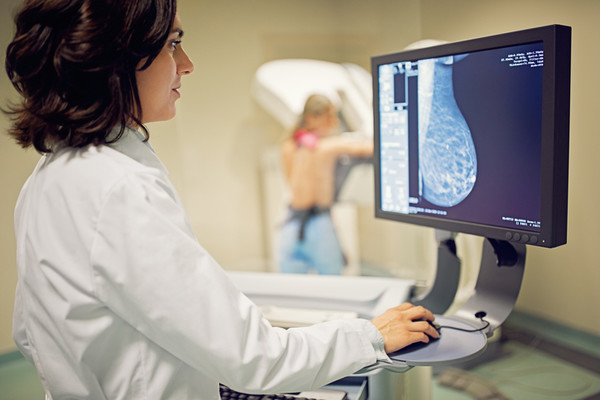
Research findings show that both hormonal changes and variations in breast density during the menopausal transition, influenced by body mass index (BMI), directly affect breast cancer risk among Korean women.
The study found that women with lower body weight, particularly those who are underweight, have a higher risk of developing breast cancer during the early menopausal transition phase.
Breast cancer peaks in Asian women in their late 40s, including Koreans and Japanese, compared to an older peak in Western women. Female hormones and higher breast density increase the risk of breast cancer.

The researchers, who released their study on Wednesday, tracked 4,737 women for an average of seven years to analyze changes in female hormones and breast density during the menopausal transition.
Professor Ryu Seung-ho of the Healthcare Data Center at Kangbuk Samsung Hospital, Professor Chang Yoo-soo and Dr. Jang Yun-young of the hospital’s Cohort Research Center, and Professor Cho Yoo-sun of the Department of Family Medicine at Asan Medical Center in Seoul jointly conducted the study.
Menopausal stages were classified into four levels according to the international STRAW+10 criteria, and breast density was quantified using automated analysis software on mammographic images. Body mass index (BMI) was categorized into four groups for comparison: underweight (<18.5), normal weight (18.5–22.9), overweight (23–24.9), and obese (≥25).
The results showed that in underweight women, both estrogen levels and breast tissue density temporarily increased during early menopause, raising breast cancer risk. In contrast, obese women experienced decreased estrogen and lower breast density, which did not increase breast cancer risk during this phase.
“Korean women usually have slimmer body types than Western women. Combined with hormonal changes in early menopause, this may explain earlier breast cancer in Korean women,” Professor Ryu said.
Professor Chang noted, “This study shows the link between BMI, hormones, and timing of breast cancer in Korean women. These findings may support creating personalized screening and prevention based on body and hormone changes in pre- and postmenopausal women.”
The study was part of the Korea Disease Control and Prevention Agency’s project on chronic disease management in menopausal women.
It was published last month in the international journal Breast Cancer Research.
Related articles
- LigaChem’s HER2 ADC IKS014 named ‘Most Promising ADC to Watch’ at World ADC Awards
- Young cancer patients number around 20,000 annually, requiring a new, separate approach
- Total medical expenses last year reached ₩128 trillion, averaging 210,000 won per person a month
- ‘Kisqali drives long-term survival toward complete remission in early breast cancer’
- [ESMO 2025] ‘Datroway offers new alternative for triple-negative breast cancer unresponsive to immunotherapy’
- Korean researchers find biomarker to predict early non-response to immunotherapy in triple-negative breast cancer

